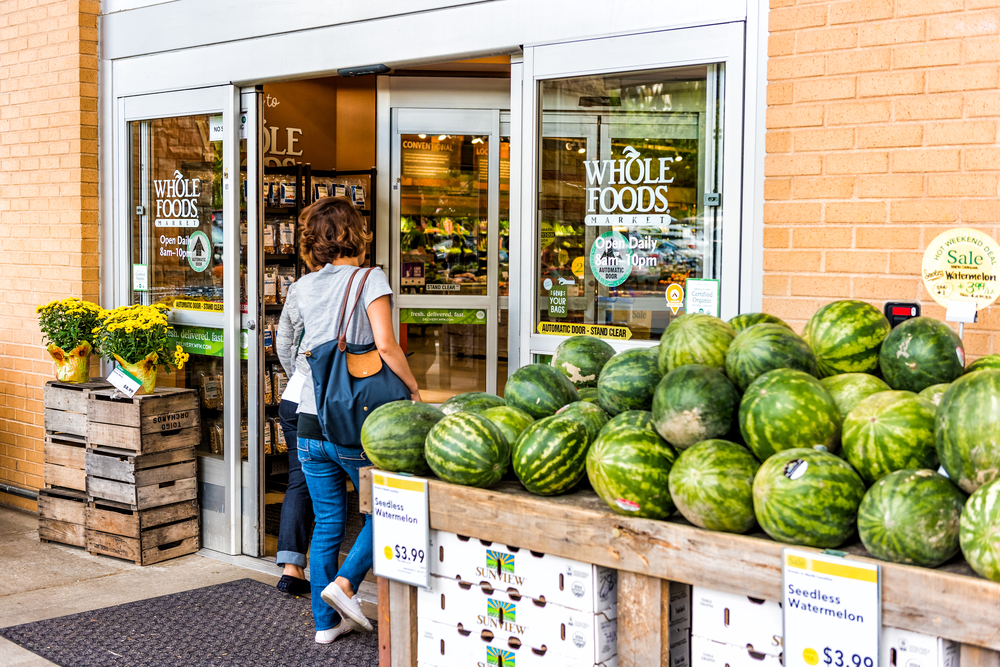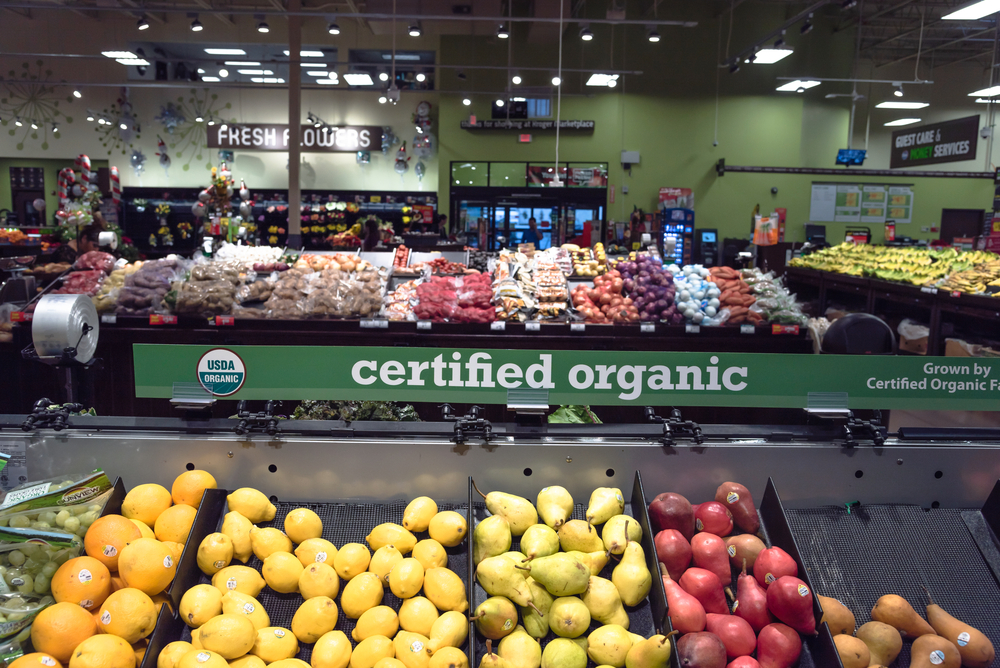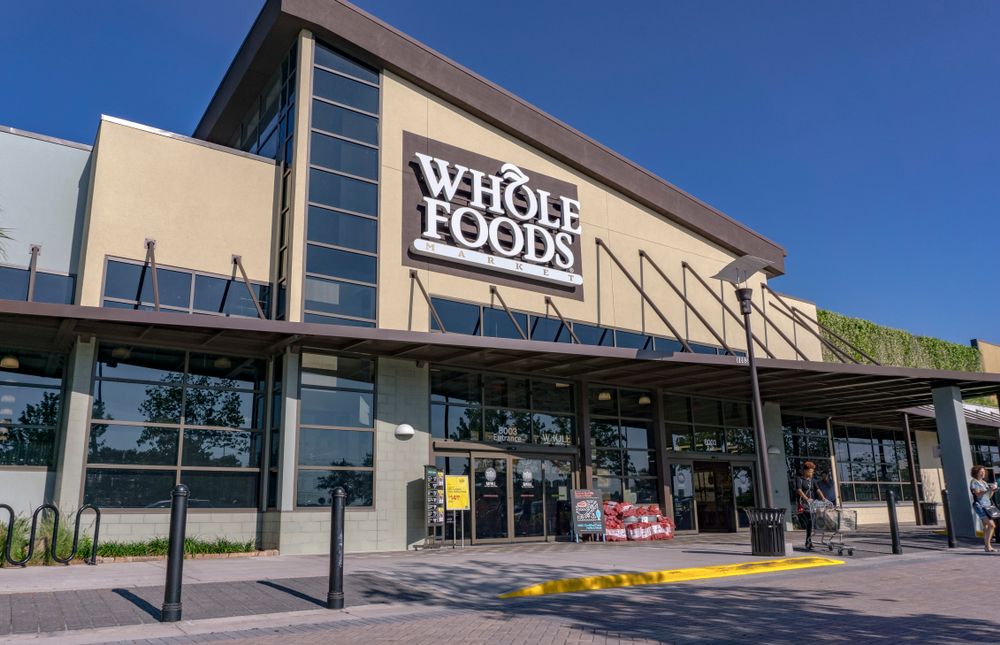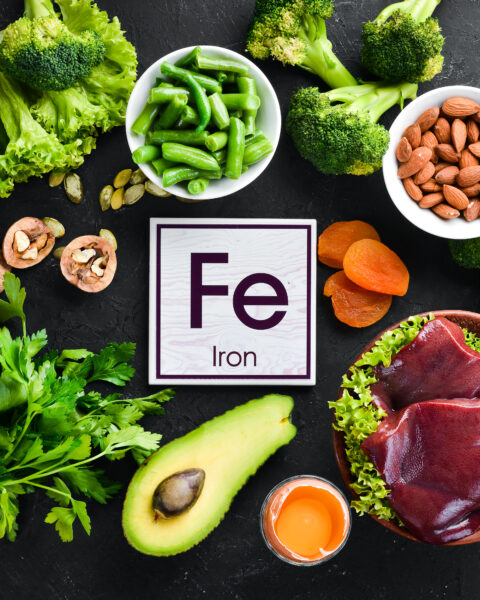Whole Foods Market is more than just a grocery store; it’s a hub of innovation, sustainability, and unique offerings. Whether you’re a frequent shopper or someone who’s only heard about it in passing, there’s a lot more to Whole Foods than meets the eye. From its strict quality standards to its surprising history, the store holds many secrets. Here are 7 incredible things you didn’t know about Whole Foods that will change how you see your next shopping trip.
Contents
- 1 Origins in Austin, Texas
- 2 Strict Quality Standards
- 3 Pioneer of Organic Certification
- 4 Commitment to Local Producers
- 5 Animal Welfare Standards
- 6 Eco-Friendly Stores
- 7 Exclusive Partnerships
- 8 More From RetailShout
- 9 15 Immune-Boosting Foods You Should Eat Regularly
- 10 15 Foods to Avoid for Improved Kidney Function
Origins in Austin, Texas

Whole Foods Market began as a small natural foods store in Austin, Texas, in 1980. Founded by John Mackey and Renee Lawson Hardy, the store was an immediate hit with health-conscious locals. From these humble beginnings, it has grown into a global phenomenon. Today, Whole Foods has over 500 locations worldwide, but its roots remain firmly planted in Austin.
Strict Quality Standards

Whole Foods is known for its rigorous quality standards, banning over 100 preservatives, flavors, colors, and other ingredients commonly found in foods. They have a list of unacceptable ingredients that cannot be used in any products sold in their stores. This commitment to quality ensures that customers can trust the products they buy. It’s part of what sets Whole Foods apart from other grocery stores.
Pioneer of Organic Certification

Whole Foods was one of the first major grocery chains to pursue organic certification for its stores. This move helped pave the way for the widespread availability of organic products. They worked closely with the USDA to develop the standards we now see today. This dedication to organic foods has made Whole Foods a trusted name in the industry.
Commitment to Local Producers

Whole Foods places a strong emphasis on sourcing products from local producers. Each store features locally grown and produced items, supporting small businesses and reducing carbon footprints. This focus on local products helps build community relationships. It also ensures customers get the freshest possible produce and goods.
Animal Welfare Standards

Whole Foods has some of the highest animal welfare standards in the grocery industry. Their 5-Step Animal Welfare Rating system provides transparency about how animals are raised. This system helps customers make informed choices about the meat they purchase. It’s part of their broader commitment to sustainability and ethical practices.
Eco-Friendly Stores

Many Whole Foods locations are designed with eco-friendly features, such as energy-efficient lighting, solar panels, and green roofing. These stores aim to reduce their environmental impact and promote sustainability. Whole Foods also focuses on waste reduction and recycling initiatives. Their green building practices set a standard for other retailers.
Exclusive Partnerships

Whole Foods has exclusive partnerships with many brands, offering products you can’t find anywhere else. These partnerships often focus on unique, high-quality items that align with their standards. From artisanal cheeses to specialty chocolates, these exclusive products make shopping at Whole Foods a unique experience. It also gives customers access to innovative and niche products.
This article originally appeared on RetailShout.
More From RetailShout
20 Best Aldi Products for a Cozy Weekend Brunch

When the weekend rolls around, there’s no better way to start your day than with a cozy brunch. Aldi’s incredible selection of affordable and high-quality products makes it easy to whip up a delicious meal that everyone will love. Read More.
15 Immune-Boosting Foods You Should Eat Regularly

Staying healthy is more than just washing your hands and getting enough sleep—it starts with what’s on your plate. A strong immune system starts with the right fuel, and certain foods pack a punch when it comes to supporting your immune system. Read More.
15 Foods to Avoid for Improved Kidney Function

Maintaining healthy kidneys is crucial for overall well-being. The foods we eat play a significant role in kidney health. By avoiding certain foods, we can help our kidneys function more effectively. Read More.






